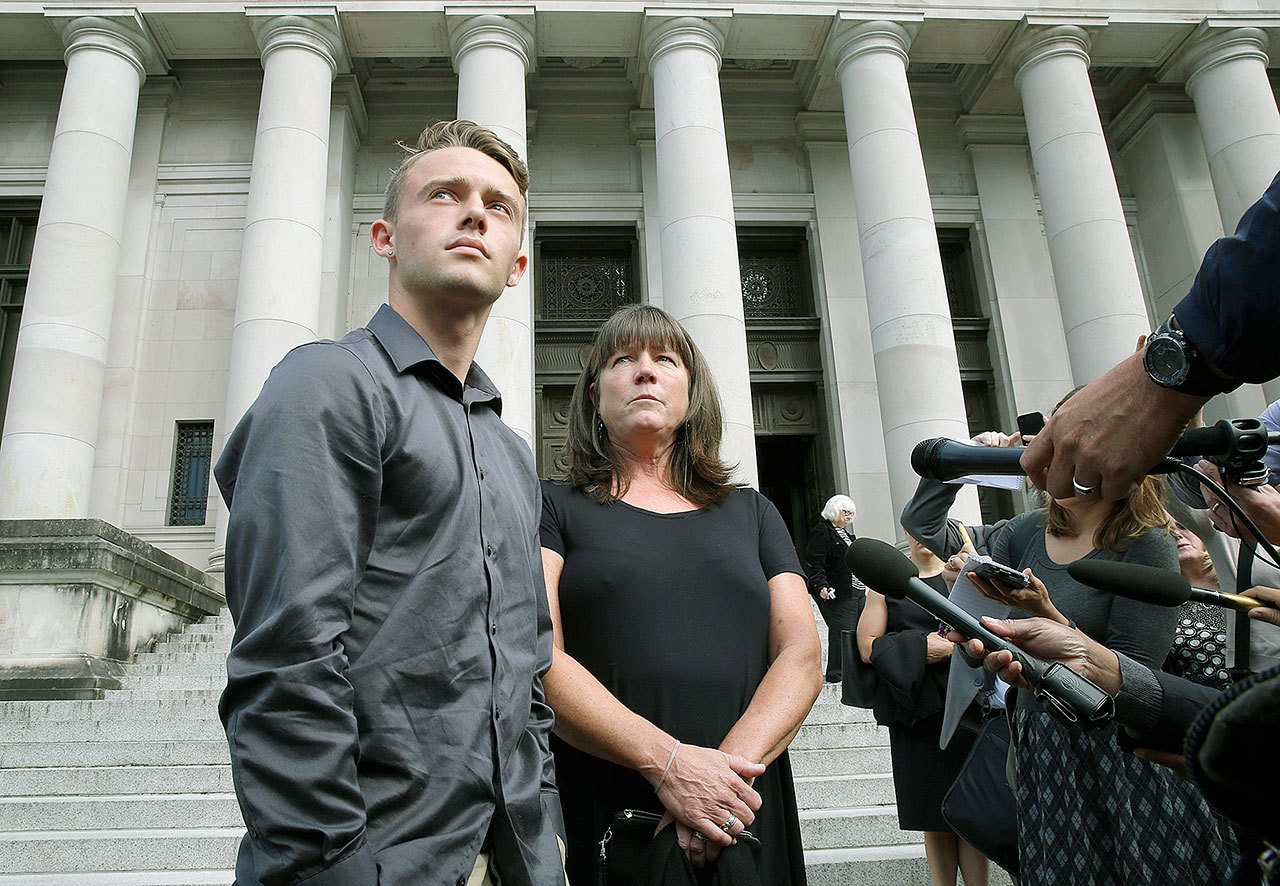OLYMPIA — The legal fight to ensure that Washington fully funds public schools returned to the state Supreme Court on Wednesday where the state’s attorney asked justices to end sanctions against lawmakers because they are “on track” to get the job done.
While avoiding an outright promise, Deputy Solicitor General Alan Copsey said lawmakers are committed to doing what it takes to comply with a 2018 deadline set by the court in the McCleary case.
“This is a big lift for the Legislature,” he said, equating the effort to that of a marathon. If “I’m 15 miles into that marathon, you can’t say I’ve done nothing. The Legislature is making progress. It hasn’t finished.”
But, as has been the case throughout a nearly 10-year journey through courtrooms, the lawyer for those who forced the state’s hand urged justices to keep the pressure on lawmakers and to be prepared to increase it should they fail to keep their word.
Tom Ahearne, an attorney for the coalition of families, school districts and the statewide teachers union, reminded justices the state has made similar promises before, and compared the ongoing debate to a merry-go-round.
“The state is telling the court the same thing … trust us and we’ll figure it out,” Ahearne said.
The court should state its intention to impose tougher sanctions, such as invalidating tax breaks or keeping schools from opening next fall, if lawmakers don’t complete their task by the end of the 2017 session, he said
“There’s no time left” after that session, he said.
The 80-minute hearing comes as the clock is winding down in the McCleary case. It was 2012 when the court found Washington’s underfunding of schools to be unconstitutional. It gave the Legislature six years to ensure the state covers the tab for the basic education of all students in the public school system.
In the past four years, the state put billions of additional dollars into schools to pay for supplies, transportation, all-day kindergarten and smaller class sizes in elementary grades. The last remaining challenge, Copsey said, is figuring out how much is needed to cover teacher salaries and where the money will come from.
In 2014, the court found the state in contempt for not providing them with a plan for ensuring compliance. Last year, they imposed a $100,000-a-day fine to further pressure lawmakers to act. That fine reached $39.1 million Wednesday.
One of the purposes of Wednesday’s hearing was to help justices decide if the state has done enough now to merit erasing the contempt order and ending the fine.
Ahearne argued the sanctions had not been effective but should stay in place nonetheless. Copsey countered that the sanctions did help push lawmakers to develop the plan sought by the court and thus should go away.
Justices didn’t sound ready to take that step. At the same time Chief Justice Barbara Madsen questioned the value of the court warning lawmakers of graver consequences in the future if they come up empty-handed versus waiting to see what happens and acting.
She and other justices also voiced displeasure to Copsey that lawmakers knew the high cost and difficulty of dealing with teacher salaries and chose to handle it last. They seemed unconvinced lawmakers can get past this hurdle next session.
It is not known if or when the court might take action as a result of the hearing.
The president of Everett Education Association attended the hearing and said justices seemed frustrated at being told the same story from the state that they’ve been told year after year.
“I got a sense that they’re struggling with what to do and whether their past penalties have been effective,” said Jared Kink, president of the association that represents teachers in Everett School District. “I think they’re looking for something different. I’m for whatever gets the state Legislature to act and get some results.”
Justin Fox-Bailey, president of the Snohomish Education Association, said he was “struck by the fact that the state argued both that ‘we’re on track and we’ll get it done’ and ‘this takes time, you can’t rush it.’
“I didn’t hear them mention the kids at all, not even once,” he said. “To them, this is about funding formulas and time lines and bill numbers.”
The Associated Press contributed to this report.
Jerry Cornfield: 360-352-8623; jcornfield@heraldnet.com Twitter: @dospueblos.
Talk to us
> Give us your news tips.
> Send us a letter to the editor.
> More Herald contact information.

























